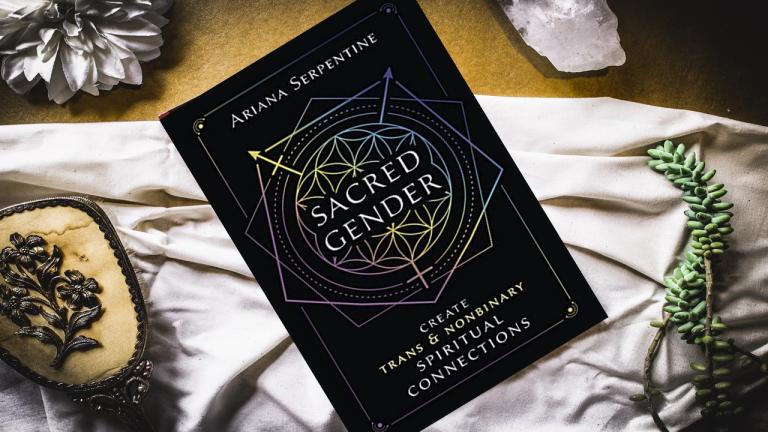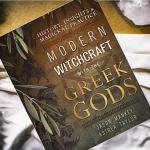River Devora, founder of the Strong Roots and Wide Branches Polytheist class series and interfaith community in Santa Clara CA and online, writes in her Foreword to Ariana Serpentine’s Sacred Gender: Create Trans & Nonbinary Spiritual Connections:
There are other books that are wonderful for helping guide folks into deepening their understanding of their gender and into accepting who we are. But none of those books are so deeply rooted in a polytheist, animist worldview. Likewise, there are other guides to understanding ourselves from a Pagan or polytheist perspective. But none are centered in a trans worldview. […] This book is a blessing. (p. xviii)
I fell in love with Sacred Gender. There is such a grace threading through Serpentine’s prose. She expresses her embodied truth with elegance and lilts of humor while covering topics such as confirmation bias, second wave feminism, the effect the overculture has had – and still exerts – on our perceptions and the ways we tend to catalogue those perceptions, colonialism, and cosmologies (“A cosmology that doesn’t contain trans people is not a human one, and it is not one that can relate to humanity, because it shunts a significant portion of humanity”, p. 34).
As I read, I found myself highlighting passages and flagging pages and then suddenly realized I had earmarked almost every single page. I found the Personal Exercises to be thought-provoking and immanently practical, particularly the Where Do You Begin and End exercise. Serpentine’s examination of the triple goddess, the divine feminine, women’s mysteries, and the masculine and feminine divine, and her suggestions for how we and our communities can incorporate an understanding of the divine that is not dependent on gender binary and “genital-based gender essentialism” are nothing short of brilliant.
As Ariana writes, “If trans people are to be welcome as part of Pagan and polytheist culture and traditions, then those traditions must incorporate an understanding of gender that includes them from the very beginning, not as outsiders for whom the blanket must be stretched out of shape.” (p. 37) I fervently hope Sacred Gender becomes a foundational text for Pagan clergy and leadership throughout our circles, groves, and kindreds. All of us should be reading this book so that each of us may do what we can to move our Pagan communities closer to the aspirational goal of being authentically welcoming to every person who seeks a safe haven with us. May It Be So.


















